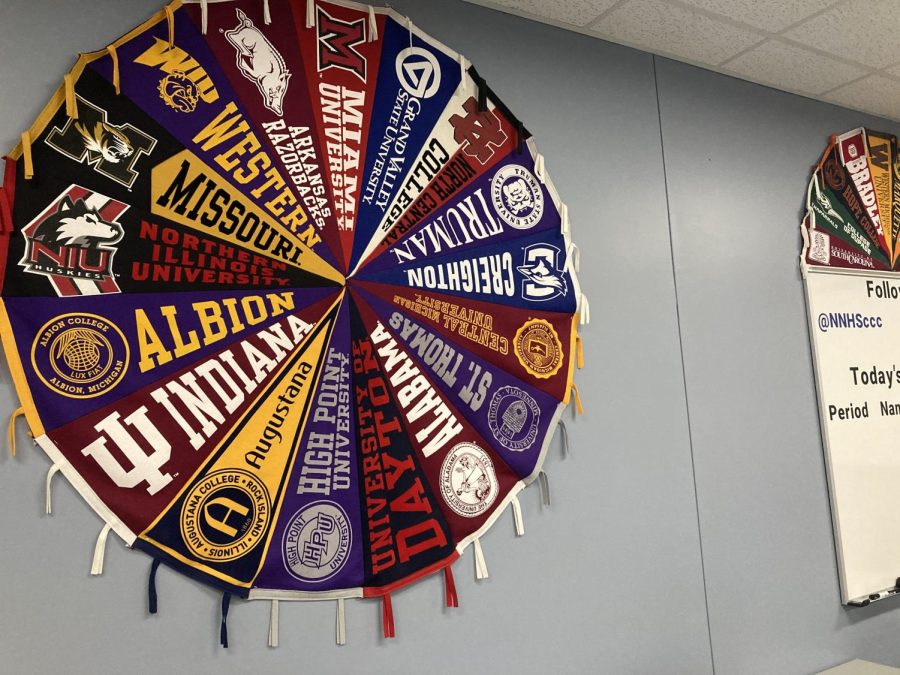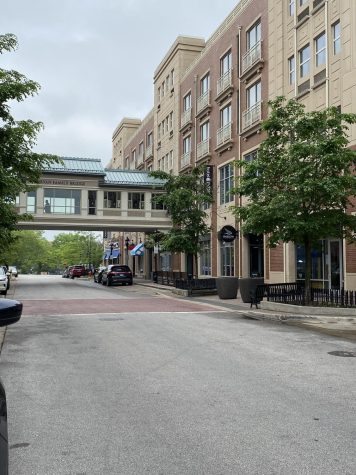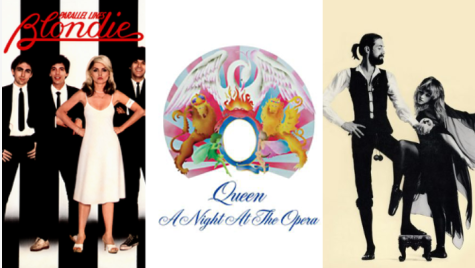Column: Picking a college doesn’t need to cause an existential crisis
Photo by Reyah Doshi
When people ask me where I’m going to college – and it happens pretty much every day – I respond with a smile and an “I don’t know yet.” I say the same thing when they ask the follow-up question: “What’s your top choice?”
You yourself have probably asked someone what their college plans are at some time in the past few months. My point is not that asking this question is, in itself, a problem. My point is that I’m frustrated by the power the question holds over me.
During quarantine, I thought a lot about what I truly wanted after high school. I thought about a gap-service year, doing something different than what I had always assumed to be my plan. But then we came back to school and I snapped back into my regular life, and now I’m back on the path to a four-year university without having taken a lot of time to think about it.
Surely, many people at Naperville North are familiar with the critiques: achievement is valued above all else, it’s a bubble of privilege, there’s too much pressure. Plenty of people here, including myself, agree that all of these are issues. But I’ve carried on operating within the confines of being an upper-middle class student in Naperville for the last four years anyway. I get good grades, participate in clubs and sports– everything I’m supposed to do. Now, I’m here, faced with decisions that somehow feel like they’ll determine the next 40 years of my life rather than just the next four.
When deciding between schools, there’s obviously this idea that’s been drilled into our heads: a prestigious college means a (financially) successful future. People usually leave out that part in the parenthesis. And then there’s the pressure of wanting to tell people you’re going to an impressive school. But there’s also the idea that college is what you make of it, and going into debt for your “dream school” is not worth it.
Coming from a situation of economic privilege, should the cost of college still be stressing me out this much? I distinctly remember going to a Bernie Sanders rally in 2019 where people were shouting out their college debt amounts– numbers like $80,000, or $100,000, or $200,000. Even if I go to an expensive college, I was born into a situation where I probably won’t have that much debt. Does that mean I should pay for a high-price-tag education, given my resources? It’s still a ludicrous amount of money. What other good could that money do in the world?
Looking at what’s on the table for me, I have an option to go to a school for an affordable price with a scholarship, and I probably would meet people from different socio-economic backgrounds and aspirations than me. Doesn’t that, in itself, hold value? But it’s also a party-heavy school with a popular Greek life, and I know that’s not something I’m interested in. Another choice is to pay a small fortune to attend a private and respected liberal arts college. But a quick glance at the demographics begs the question: do I really want to spend four years in a privileged echo chamber that mirrors the one I grew up in?
If I choose to save money, am I shutting doors for myself? But are they doors that I even want to walk through? I know I don’t want a life where my job becomes my identity, or where I’m answering emails every second of the day. Before picking a college, my brain is somehow telling me that I need answers to huge questions. What’s my ultimate purpose?
If all of these questions are making your head spin, I’d like to welcome you to my thought process throughout the last few months. This all brings me to my ultimate point: I can keep going down this rabbit hole until I’m pondering the nature of the universe. But through conversations with college students and adults, I am slowly learning that I don’t need to.
I can’t pre-ensure the perfection of each of my decisions. Although this choice seems like a big one, I’m going to make it one way or the other, and then the college I end up at will just be a choice I made, not something I’m constantly thinking about. I can even transfer if I need to. Better preparation might be to practice my resilience and flexibility skills rather than attempt to control every aspect of what my future will look like at the ripe old age of 17.
It takes a lot of thoughtfulness to face this choice head-on despite the pressured atmosphere I’ve grown up in. But as I wait on a couple of admission decisions and begin the final college selection process, I’ve decided this: I’m going to put my full faith in my ability to handle each thing as it comes, no matter where I end up next year.

Reyah is a senior at North and is excited to take on the role of Editor-in-Chief in her third year writing for The North Star. This year, she hopes to...











